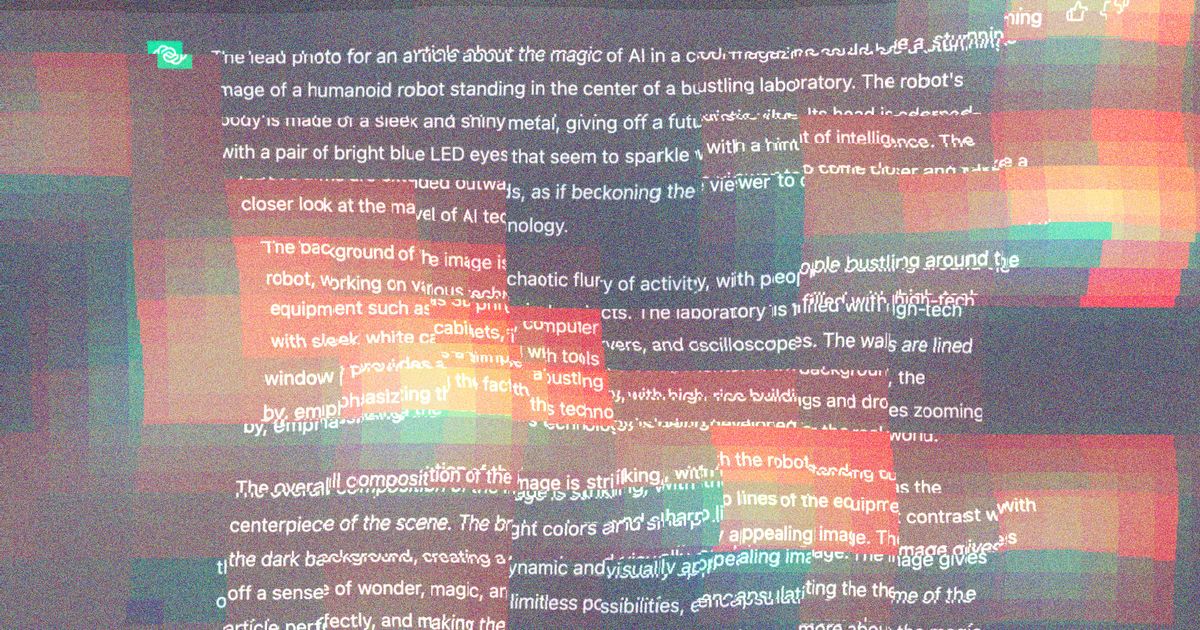Isabelle Levent
@isabellelevent
Isabelle Levent
@isabellelevent
They will shade our constant submissions to the vast digital commons, intentional or consensual or mandatory, with the knowledge that every selfie or fragment of text is destined to become a piece of general-purpose training data for the attempted automation of everything. They will be used on people in extremely creative ways, with and without
... See more/cdn.vox-cdn.com/uploads/chorus_asset/file/12907051/akrales_180911_2943_0002.jpg)
Copyright and
The fact that adding keywords like Let’s Think Step By Step , adding “Greg Rutkowski”, prompt weights, and even negative prompting are still so enormously effective, is a sign that we are nowhere close to perfecting the “language” part of “large language models”.
Indeed, AI is a diffuse term that corresponds to a web of human actors and computational processes interacting in complex ways
Although the humans involved in the creation of Edmond de Belamy were essentially cut out of the art’s creation narrative, the AI itself was often spoken about as having human-like characteristics.

Tech Ethics and
There are a couple reasons why Wordcraft may have struggled with style and voice... Another reason could have been limitations of the underlying model. LaMDA and other similar language models are trained to be most confident on the kind of text they see most often–typically internet data. However, professional creative writers are usually writing
... See more"The data we licensed from Shutterstock was critical to the training of DALL-E,” said Sam Altman, OpenAI’s CEO. “We’re excited for Shutterstock to offer DALL-E images to its customers as one of the first deployments through our API, and we look forward to future collaborations as artificial intelligence becomes an integral part of artists’
... See moreThis builds on a growing body of work that our ‘‘mind perception’’ (which manifests as inferences of intentions, beliefs, and values) meaningfully varies across individuals and shapes our moral judgments